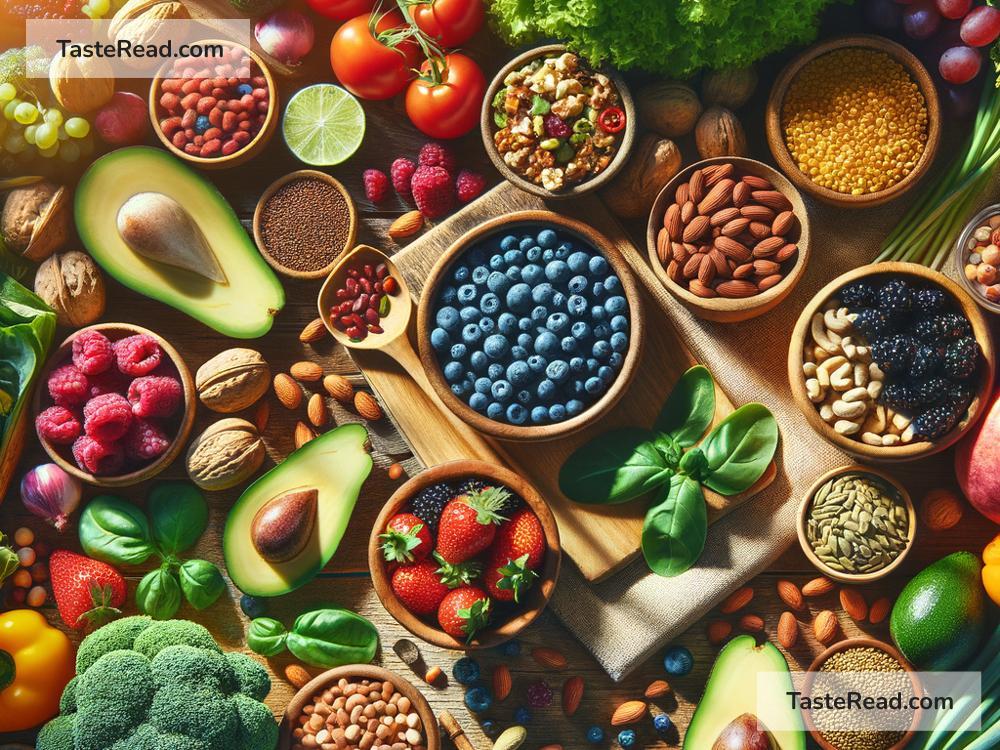Foods that Reduce the Risk of Obesity
Maintaining a healthy weight is essential for overall well-being. Obesity can lead to health problems such as heart disease, diabetes, and joint pain. While exercise and lifestyle choices are crucial for preventing obesity, the food we eat plays a big role too. In this blog, we’ll talk about foods that can help lower the risk of obesity. They’re not magic solutions but, combined with healthy habits, these foods can make a difference in managing weight and staying fit.
1. Whole Grains
Whole grains like brown rice, oatmeal, quinoa, and whole wheat bread are fantastic for reducing the risk of obesity. Unlike refined grains, whole grains are full of fiber, which helps you feel full for longer. When you feel full, you’re less likely to overeat or snack on unhealthy foods. Fiber also keeps your digestion healthy and stabilizes blood sugar levels, which can help prevent weight gain over time.
2. Leafy Greens
Leafy greens like spinach, kale, and lettuce are packed with nutrients but contain very few calories. High in water and fiber, leafy greens add volume to your meals without contributing much to your calorie intake. Eating a big, colorful salad before your main course can help reduce overall calorie consumption, making leafy greens a great choice if you’re looking to manage weight.
3. Fruits
Fruits are sweet, satisfying, and loaded with vitamins, antioxidants, and fiber. Fruits like apples, berries, oranges, and pears have low calories but provide a sense of fullness because of their water and fiber content. If you’re craving something sweet, choosing a piece of fruit instead of sugary desserts can help avoid unnecessary weight gain.
4. Legumes and Beans
Beans, lentils, chickpeas, and other legumes are a great source of protein and fiber, making them ideal for weight management. Protein boosts metabolism and helps repair muscles after activity, while fiber works to keep you satisfied for longer periods. Including legumes in soups, salads, or stir-fry meals can help you reduce calorie intake while enjoying tasty, nutritious dishes.
5. Lean Protein
Proteins like chicken breast, turkey, eggs, tofu, and fish are important for managing weight. Protein not only keeps you full but also helps build and maintain muscle. Studies show that eating more protein can reduce cravings and late-night snacking, which are common contributors to weight gain. Chicken grilled or baked, or fish served with veggies, is a healthy and filling option.
6. Nuts and Seeds
Nuts and seeds, such as almonds, walnuts, chia seeds, and sunflower seeds, are high in healthy fats, protein, and fiber. Though they’re calorie-dense, eating them in moderation can actually reduce hunger and promote weight loss. For example, a small handful of almonds makes a great snack that can keep you full between meals.
7. Greek Yogurt
Greek yogurt is an excellent food for preventing obesity. It’s rich in protein and has fewer sugars compared to regular yogurt. It helps build muscle and aids digestion, especially when it contains probiotics. Pair plain Greek yogurt with fruits or a drizzle of honey for a delicious, healthy snack or breakfast.
8. Avocados
Though avocados are high in calories, they contain healthy monounsaturated fats that make you feel full and satisfied. They’re also packed with fiber, vitamins, and minerals. If eaten in moderation, avocados can help manage hunger and cravings. Add avocado slices to your sandwich or salad, or enjoy it mashed with a sprinkle of lime juice as guacamole.
9. Sweet Potatoes
Sweet potatoes are a healthier alternative to white potatoes because they’re packed with fiber and lower in calories. Their natural sweetness can help combat sugar cravings while their high starch content keeps you full. Baked, roasted, or mashed sweet potatoes make a great side dish in place of refined carbs, like white bread or pasta.
10. Green Tea
While not a food, green tea deserves a mention. It’s a calorie-free beverage that’s rich in antioxidants and is known to boost metabolism. Drinking green tea instead of sugary drinks like soda or juice can help with weight management. Its natural compounds may also aid fat loss when combined with healthy eating.
11. Spices
Certain spices, like black pepper, turmeric, cinnamon, and cayenne pepper, can boost metabolism and may help reduce appetite. For example, cinnamon helps stabilize blood sugar levels, while turmeric reduces inflammation, which is linked to weight gain. Adding these spices to your meals can make them healthier and tastier.
Final Tips:
- Portion Control: Even healthy foods can lead to weight gain if consumed in large quantities. Keep track of portion sizes to ensure you don’t overeat.
- Avoid Processed Foods: Processed foods like chips, candy, and ready-made meals are often high in calories, fat, and sugar.
- Hydration Matters: Sometimes hunger is mistaken for thirst. Drink water throughout the day to stay hydrated and avoid overeating.
Making smart food choices can be a powerful tool for reducing the risk of obesity. By incorporating fiber-rich, nutrient-dense, and satisfying foods into your diet, you can support your health and maintain a balanced weight. Remember, no single food can prevent obesity, but focusing on wholesome, natural options while staying active is the key to a healthier lifestyle.


